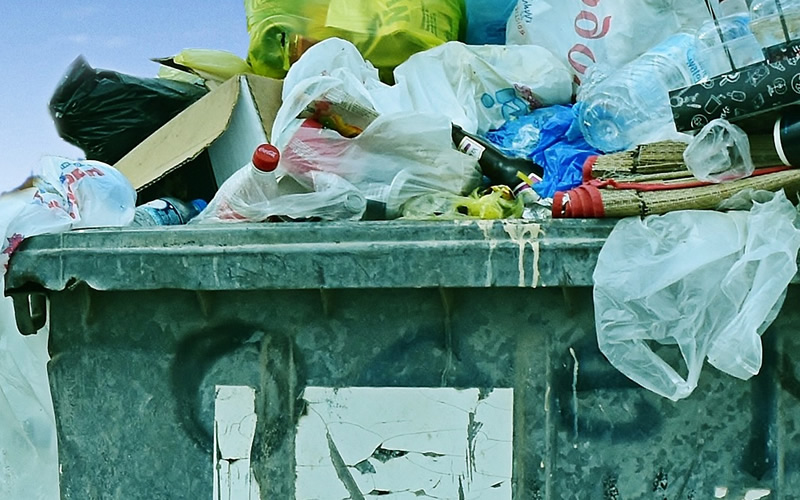By Laura Cantral | Trash. Trash has always been a problem, and now that problem is getting even bigger all over the world. Global and local circumstances now mandate that we get creative on how we reckon with waste, including in our own backyard.
The New York Times recently reported that recycling efforts across the country are collapsing. For cities and towns, costs to run their recycling programs have skyrocketed after a crash in the global market. Communities used to make money selling cardboard, bottles, and glass, but now they get little or nothing for the material. At times, they even have to pay processors to take it away.
Small towns in Florida have canceled entire curbside pick-up programs. Philadelphia now burns about half of its recyclables, while city residents grow more concerned about air quality. Every plastic bottle dropped in a blue bin at the Memphis airport is thrown away. And in Charleston County, a month of recycling now sits under a tarp at the Bees Ferry Landfill.
“There’s no place to send it,” Charleston County Councilman Vic Rawl told a local TV station.
Last month, the county chose not to extend its contract with Horry County and truck recyclables north. An existing facility located on the peninsula is outdated and ill-equipped to manage our pace and volume. Plans to build a more modern facility are on-hold.
So, a covered pile of about 3,000 tons of recycled paper, glass, aluminum and plastic sits and awaits its fate. If pieces of it get wet, they’ll be buried at the landfill just like trash.
We need leadership. Charleston County should be transparent about the future of its recycling program and plans to build a new facility, and it should move quickly to address the mountain of recyclables that are piling up at Bees Ferry. And we can all recommit to reducing the amount of waste we produce individually.
Established recycling programs have done much to keep plastic bottles, aluminum, and glass out of the environment, but they haven’t addressed single-use plastics — plastics that are typically used once and tossed like bags, straws, and Styrofoam. Single-use plastics are not easily recycled and are often scattered throughout the environment, impacting waterways and wildlife.
But local communities along our coast have stepped up and done that themselves by putting in place bans on single-use plastics. That’s one of the strongest indicators I’ve observed so far about how important our work is in South Carolina. In fact, last night, Charleston County finalized its own single-use plastics ban for unincorporated parts of our community.
Senate to take up big bill with local impacts
Still, efforts to deny local progress and community-driven solutions are facing strong opposition. On Wednesday, several senators again considered a bill that would unravel existing bans and prevent future local action on plastic pollution. The executive director of a national special interests group representing big plastic manufacturers traveled from Washington to attend the hearing and snubbed local bans as ineffective and “emotions based.”
Mayors and council members from Folly Beach, Isle of Palms, Mount Pleasant, Charleston, Arcadia Lakes and Beaufort County gathered together at the Statehouse. They rejected this dismissal and advocated passionately for their constitutional right to govern close to home. With pride, these leaders discussed civic and business engagement and enthusiasm, and cited scientific evidence of the plastics threat. They spoke about the need to protect what’s so important to all of us: a clean, healthy, and safe environment.
For the health of our local waterways, wildlife, community health, and vibrant tourism sectors, we stand with them. I know you do, too. If you want to join these local leaders in speaking up this week, please call or email your state Senator and oppose Senate Bill 394 now.
We’ve already proven that individual actions, by you and your community, can combine and spur a movement for environmental progress in South Carolina. Let’s keep it up. We can take on new challenges and conservation opportunities together.
Laura Cantral is executive director of the Coastal Conservation League.
- Have a comment? Send to: editor@charlestoncurrents.com





 We Can Do Better, South Carolina!
We Can Do Better, South Carolina!
























